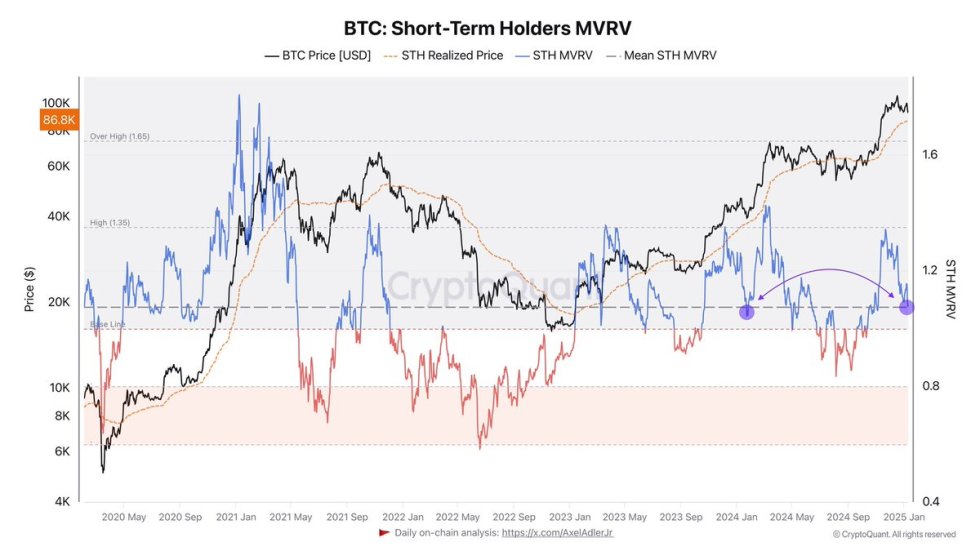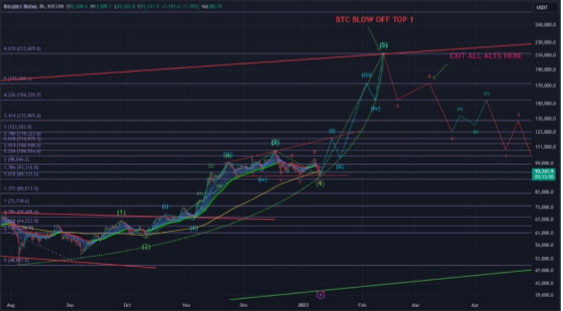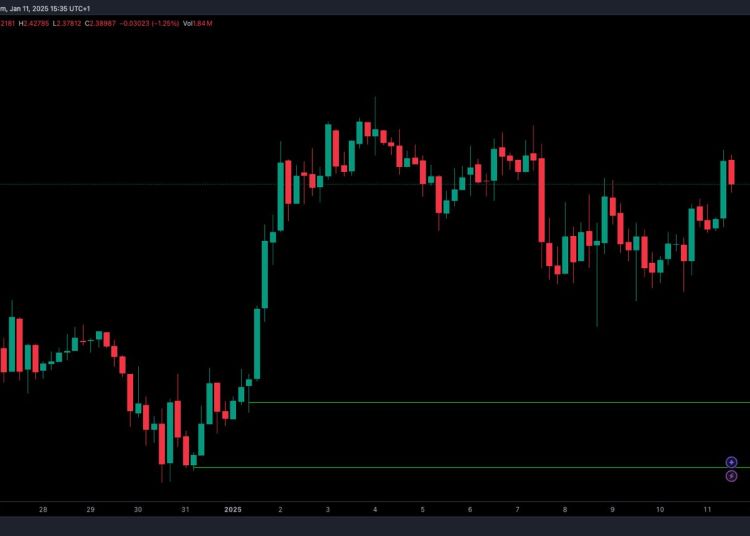Cryptocurrency prices are plummeting. According to one estimate, crypto assets have lost around $1.35 trillion ($1.9 trillion) in value since November, with some crypto price crashing by as much as 80%. Many investors are in a tight spot.
The good news is that world economy isn’t poorer. As a result, there won’t be much of an economic response to the new prices.
Crypto Price Fall Dominates HeadlineThe recent crypto news has been dominated by the price collapse of numerous major currencies.
Since November, the price of bitcoin has been dropping. The price of cryptocurrencies has also dropped in the last week, according to reports, due to new US regulations on digital assets. Bitcoin’s price dropped from $69,000 in November to $32,951 last week.
Bitcoin Price Chart. Source: BloombergEthereum’s price has plummeted to roughly $2,400, down from nearly $5,000 at the end of 2021. Top cryptocurrencies like XRP, Solana, BNB, and Cardano have had their value plummet by up to 30%. The big crypto meltdown of 2022 wiped out $1.5 trillion from the industry as a whole.
The impact of the cryptocurrency meltdown on the rest of the economy is minimal. The $1.5 trillion in losses is only approximately 6% of the US GDP. Second, the cryptocurrency ecosystem is largely detached from the rest of the economy. Because banks have avoided crypto, the crash has had little effect on the financial market.
Many have held on to the believe that US regulations contributed to the bloodbath. Due of the national security risks posed by Bitcoin, the Biden administration is attempting to develop a strategy to regulate cryptos.
As a result of the Federal Government’s measures, traders have been urged to sell their Bitcoin holdings in large numbers.
The US Federal Reserve’s policy changes have an impact on Bitcoin pricing.
The Federal Open Market Committee will raise the double monthly rate, cutting asset purchases, according to Federal Reserve Chair Jerome Powell. The Federal Reserve implemented these steps in order to curb inflation and its detrimental influence on Bitcoin prices.
Geopolitical disputes can also have a negative impact on the market. Geopolitical disputes can also have a negative impact on the market. Kazakhstan recently faced electricity shortage due to internal crisis. Widespread tensions are also building between Ukraine and Russia.
Related article | Bitcoin Bears To Resume Assault? Why BTC Could Crash To $33K
Ending January In ConfusionAs the month closes, many investor are in cautious optimism. However, inflows have turned positive since last week.
According to CoinShares, digital asset investment products received $19 million in cumulative inflows last week. With $22 million and $32 million in inflows, respectively, bitcoin and multi-asset funds led the gains.
The news wasn’t all good, as Ethereum continued to face unfavorable sentiment, with $27 million in outflows. This was the eighth week in a row that ETH-focused funds have seen outflows. Outflows were also recorded during the week for Solana, Polkadot, and Cardano products.
Since December, institutional investors have been selling digital asset products in droves, taking profits and reducing their stakes during market selloffs. According to CoinShares data, Bitcoin funds have suffered a net outflow of $131.8 million so far this year. There have been $111.2 million in withdrawals from Ether funds.
Bitcoin dropped as much as 2.9% to roughly $36,680 on Monday before recouping losses. It has now dropped more than 18% in a month, the worst start to a year since 2018’s 29% drop and a bleak follow-up to December’s 19 percent drop.
BTC/USD recovers to $38k. Source: TradingViewBetween November’s peak and January’s lows, Bitcoin has lost approximately half of its value. According to Goldman Sachs’ Zach Pandl and Isabella Rosenberg, this loss puts it at “the low end of the range” of large drawdowns in the past. Since 2011, the pair estimates that the coin has had five big pullbacks from all-time highs, with an average peak-to-trough fall of 77 percent. They noted in a note that the decreases continued on average seven to eight months. According to them, the highest cumulative Bitcoin fall, a loss of 93%, occurred in 2011.
Related article | Bitcoin Funding Rates Remain Negative For More Than A Week
Featured image from Unsplash.com, charts from TradingView.com, Bloomberg
You can get bonuses upto $100 FREE BONUS when you:
💰 Install these recommended apps:
💲 SocialGood - 100% Crypto Back on Everyday Shopping
💲 xPortal - The DeFi For The Next Billion
💲 CryptoTab Browser - Lightweight, fast, and ready to mine!
💰 Register on these recommended exchanges:
🟡 Binance🟡 Bitfinex🟡 Bitmart🟡 Bittrex🟡 Bitget
🟡 CoinEx🟡 Crypto.com🟡 Gate.io🟡 Huobi🟡 Kucoin.




















Comments